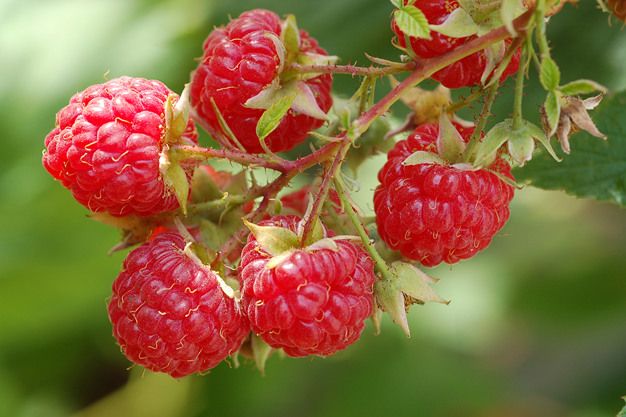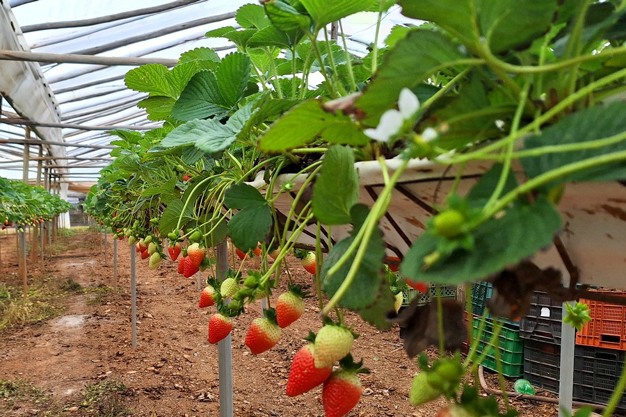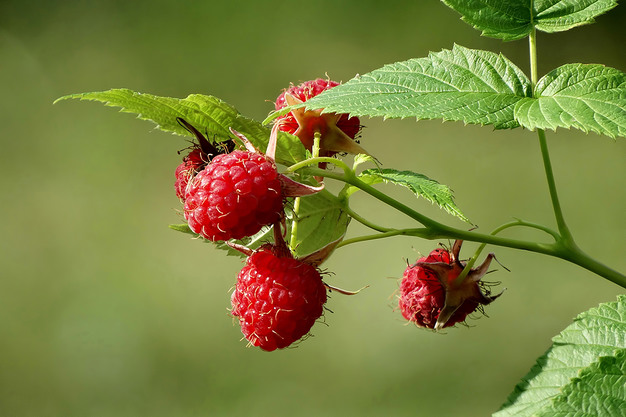Portuguese berry exports have grown rapidly in recent years. In the last five years, their value has gone from 233 million in 2019 to a total of 294 million euros in 2023, according to data from Portugal Fresh reported at the latest strawberry contact group of France, Italy, Spain and Portugal. Raspberries, which last year accounted for 70% of the value of berry exports, are currently the country's main berry, according to Carla Monteiro, from the Agriculture Department of Madre Fruta, the Portuguese Algarve Strawberry and Berry Producers' Organization. She confirmed this during her recent participation in the 9th International Berry Congress held in Huelva, Spain.
"Madre Fruta was founded in 1996, 28 years ago, but it only started growing berries in 2007, beginning with strawberries, and a year later with raspberries," says Carla, who outlined the vision and strategic objectives of the producers' organization. "In 2023, our associated producers cultivated 166 hectares of berries. Of these, 111 corresponded to raspberries and 54 to blackberries, and strawberries were only grown on 1 hectare." In fact, "growers are quitting strawberry production in the Algarve because it's not a profitable crop."
 © Natalia Vainshtein | Dreamstime
© Natalia Vainshtein | Dreamstime
Data from the latest export season confirm this trend. While raspberry sales increased by 13%, blueberry sales by 5% and blackberry sales by 27%, strawberry sales decreased by 11% compared to 2022.
"In our area, we can only grow berries in hydroponics, and the profitability of strawberries in hydroponics is lower than in soil cultivation," says Carla. "That's why the production is gradually being abandoned."

"On our own, we go faster, but together we go further".
Portugal has a highly suitable climate for berry cultivation "which allows us to obtain high quality fruit all year round, and our proximity to the European market allows us to supply fruit that is riper than that of other countries," says Carla. However, they are also facing a number of challenges that have intensified in recent years.
As far as emerging pests are concerned, "citrus thrips are causing a lot of trouble in the spring-summer raspberry plantations, and there is a new mite that is also causing problems in blackberries; apart from Drosophila suzukii, which is still giving us a lot of headaches."
 © Danperte | Dreamstime
© Danperte | Dreamstime
"On top of that, fewer and fewer phytosanitary products are allowed. The tools we had to combat pests are being replaced by products that are more environmentally-friendly, but less efficient, so more applications are needed. With organic products, treatments are needed almost weekly to combat pests such as mites. They are indeed less toxic, but much more expensive for the producers, and the question is: are customers willing to pay more for the fruit if the producer has to pay more to combat pests? The answer, unfortunately, is no."
"With regard to the market, we see increasing demands. Buyers require more and more new certifications, which means more costs and more work for the growers, which they are forced to accept if they want to sell their fruit, but the end customer is not willing to pay more."
Since weather adversities are becoming more frequent and intense, and agricultural producers are also affected by water crises and restrictions on irrigation, Carla believes there's a need for unity in the sector to face all the challenges with greater strength.
"I would like to share with you the motto of Madre Fruta, which should be the motto of all producers in Spain and Portugal: 'On our own, we go faster, but together we go further.'"
